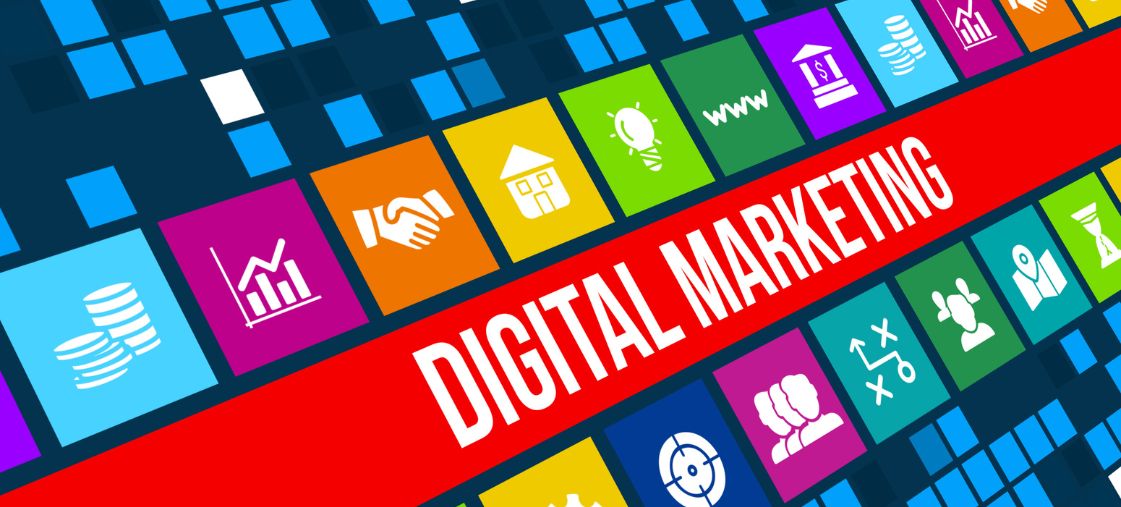
The Future of Marketing Technology: Revolutionary Trends Shaping Digital Marketing
The future of marketing technology promises unprecedented transformation through artificial intelligence, automation, and emerging digital innovations that will fundamentally reshape how businesses connect with customers, optimize campaigns, and drive growth in an increasingly complex and competitive marketplace.

Artificial Intelligence and Machine Learning Revolution
Artificial intelligence represents the most significant technological advancement in marketing history, enabling businesses to process vast amounts of data, predict customer behavior, and automate complex decision-making processes with remarkable accuracy. Machine learning algorithms continuously improve campaign performance by analyzing patterns, optimizing targeting, and personalizing customer experiences at scale. Industry experts predict that AI-powered marketing tools will become essential for businesses seeking to maintain competitive advantages and deliver exceptional customer experiences in the digital age.
AI Applications in Marketing:
- Predictive analytics for customer behavior forecasting
- Automated content generation and optimization
- Real-time personalization engines
- Intelligent chatbots and virtual assistants
- Dynamic pricing optimization algorithms
- Advanced customer segmentation models
Marketing Automation and Workflow Optimization
Marketing automation continues evolving beyond simple email sequences to encompass comprehensive customer journey orchestration across multiple channels and touchpoints. Advanced automation platforms integrate with various data sources to create sophisticated workflows that respond to customer behaviors, preferences, and lifecycle stages in real-time. This evolution enables marketers to deliver highly relevant, timely communications while optimizing resource allocation and improving operational efficiency.
Next-Generation Automation Features:
- Cross-Channel Orchestration: Seamless integration across email, social media, SMS, and web platforms
- Behavioral Trigger Systems: Advanced response mechanisms based on customer actions and preferences
- Predictive Lead Scoring: AI-powered qualification systems that identify high-value prospects
- Dynamic Content Optimization: Real-time content adaptation based on user characteristics
- Intelligent Campaign Management: Automated optimization of timing, frequency, and messaging
Customer Data Platforms and Unified Analytics
Customer Data Platforms (CDPs) are revolutionizing how businesses collect, unify, and activate customer data across all touchpoints and channels. These platforms create comprehensive customer profiles by integrating data from various sources, enabling more accurate targeting, personalization, and measurement. The future of CDPs includes enhanced privacy compliance features, real-time data processing capabilities, and advanced analytics that provide deeper insights into customer behavior and preferences.
CDP Implementation Strategy:
- Audit existing data sources and integration requirements
- Define data governance policies and privacy compliance measures
- Select CDP solutions that align with business objectives and technical capabilities
- Develop data unification and cleansing processes
- Create activation strategies for personalized customer experiences
- Establish measurement frameworks for ROI tracking
Voice Technology and Conversational Marketing
Voice technology is transforming customer interactions through smart speakers, voice assistants, and conversational interfaces that enable more natural, intuitive communication between brands and consumers. Understanding customer behavior patterns becomes crucial as voice interactions create new touchpoints and require different optimization strategies compared to traditional digital channels. Businesses must adapt their marketing approaches to accommodate voice search optimization, conversational commerce, and audio content strategies.
Voice Marketing Opportunities:
- Voice search optimization for local and product queries
- Interactive voice applications and branded skills
- Audio advertising and podcast marketing integration
- Voice-activated customer service and support
- Conversational commerce and voice-enabled purchasing
Augmented Reality and Immersive Experiences
Augmented Reality (AR) and Virtual Reality (VR) technologies are creating new possibilities for immersive marketing experiences that engage customers in unprecedented ways. These technologies enable virtual product demonstrations, interactive brand experiences, and enhanced customer engagement that bridges the gap between digital and physical interactions. As AR and VR become more accessible and affordable, businesses across industries are exploring innovative applications for customer acquisition, engagement, and retention.
AR/VR Marketing Applications:
- Virtual product try-on experiences for retail and fashion
- Immersive brand storytelling and experiential marketing
- Interactive product demonstrations and tutorials
- Virtual showrooms and digital shopping experiences
- Gamified marketing campaigns and brand interactions
- Enhanced social media content and advertising formats
Privacy-First Marketing and Data Protection
The future of marketing technology must prioritize privacy protection and data security as regulatory requirements become more stringent and consumer awareness increases. Privacy-first marketing approaches focus on building trust through transparent data practices, obtaining explicit consent, and providing value in exchange for customer information. This shift requires new technologies and strategies that enable effective marketing while respecting customer privacy preferences.
Privacy-Compliant Marketing Strategies:
- First-Party Data Focus: Building direct relationships and data collection strategies
- Consent Management Platforms: Implementing robust permission and preference systems
- Contextual Advertising: Targeting based on content rather than personal data
- Privacy-Preserving Analytics: Using aggregated and anonymized data for insights
- Transparent Communication: Clear disclosure of data usage and value exchange
Blockchain Technology and Marketing Transparency
Blockchain technology offers solutions for marketing transparency, fraud prevention, and trust-building through immutable record-keeping and verification systems. This technology can address challenges in digital advertising, supply chain transparency, customer loyalty programs, and data security. As blockchain adoption increases, marketers will have new tools for building trust and ensuring accountability in their campaigns and customer relationships.
Internet of Things (IoT) and Connected Marketing
The Internet of Things creates new data sources and customer touchpoints through connected devices, smart appliances, and wearable technology. This connectivity enables more comprehensive customer insights, contextual marketing opportunities, and seamless omnichannel experiences. Marketers must develop strategies for leveraging IoT data while respecting privacy and providing relevant value to customers.
IoT Marketing Considerations:
- Data integration from multiple connected devices
- Contextual messaging based on device usage patterns
- Privacy and security measures for connected data
- Cross-device customer journey mapping
- Real-time optimization based on IoT insights
Quantum Computing and Advanced Analytics
Quantum computing represents the next frontier in computational power, promising to revolutionize complex data analysis, optimization problems, and predictive modeling in marketing. While still emerging, quantum computing will eventually enable unprecedented analytical capabilities, real-time processing of massive datasets, and sophisticated modeling that surpasses current technological limitations.
Implementation Roadmap for Future Technologies
Successfully adopting future marketing technologies requires strategic planning, phased implementation, and continuous learning. Organizations must assess their current capabilities, identify priority areas for improvement, and develop comprehensive adoption strategies that align with business objectives and customer needs.
Technology Adoption Framework:
- Assessment Phase: Evaluate current technology stack and identify gaps
- Strategy Development: Define objectives and success metrics for new technologies
- Pilot Programs: Test emerging technologies with limited scope and budget
- Integration Planning: Develop comprehensive implementation and integration strategies
- Training and Development: Build team capabilities and expertise
- Scaling and Optimization: Expand successful implementations and optimize performance
Conclusion
The future of marketing technology presents extraordinary opportunities for businesses willing to embrace innovation, adapt to changing customer expectations, and invest in emerging technologies that enhance customer experiences and drive business growth. Success in this evolving landscape requires strategic thinking, continuous learning, and a commitment to ethical, customer-centric approaches that build trust and deliver genuine value. Advanced marketing platforms will continue evolving to support these technological advances, providing marketers with increasingly sophisticated tools to navigate the complex digital ecosystem and achieve sustainable competitive advantages in an rapidly changing marketplace.
Key Takeaway: The future of marketing technology will be defined by AI-powered personalization, privacy-first approaches, immersive experiences, and integrated platforms that enable seamless, customer-centric marketing strategies across all channels and touchpoints.


